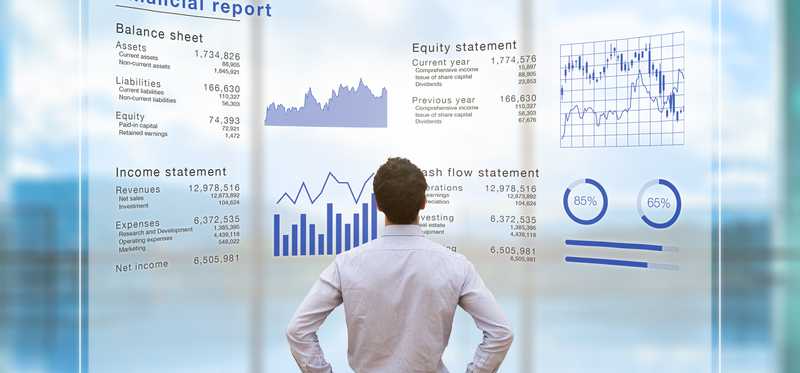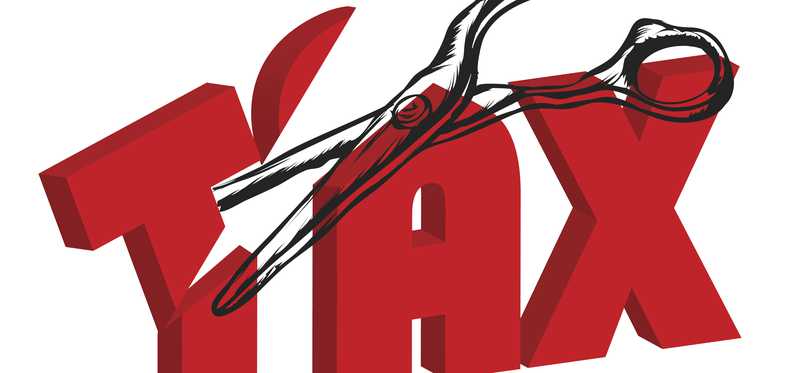15 Smart Questions Everyone Should Ask Their Financial Advisor

15 Smart Questions Everyone Should Ask Their Financial Advisor
Make sure you know the answers to these questions
At some point in our lives, all of us need help with some aspect of our lifetime financial plan. Sometimes it’s with the foundation of how to get started. Other times, it’s with the transition from "saver" to "spender." Still other times, it’s how to protect hard-earned money from financial mistakes or to assure the next generation can benefit from the wealth you accumulated.
There’s no shame in asking for the help you need -- and a strong financial advisor can do wonders for helping you get your own financial house in order. Still, there are plenty of minefields that you can run into when you’re seeking out help. These 15 questions can help you make sure you’re walking in eyes wide open when you’re meeting with -- and entrusting your money to -- a financial planner.
Previous
Next

1. What are your credentials?
It’s fairly straightforward to set yourself up as a "financial planner." With some minimal training and registration with either the Securities and Exchange Commission or the state, nearly anyone can hang up a shingle and call themselves a financial planner. That doesn’t mean they particularly know what they’re doing or that they’re really looking out for your best interests.
You want someone who has passed rigorous training and is required to adhere to ethical standards when they’re dealing with your money. One such credential is the “Certified Financial Planner” (CFP) designation. Holders of that title have to take a specific training program, pass a challenging certification exam, and have experience in financial planning before they can use the title. They also have to adhere to a strict code of ethics that includes acting in the best interests of their clients as a fiduciary.
Particularly when dealing with complex matters like a trust, Medicaid planning, or estate planning, you may also want to work with someone that has a law degree that specializes in those types of situations. It may be the same person who holds both types of credentials, but often you’ll find you’re better served with one person to handle the financial aspects and another to handle the legal ones.
ALSO READ: 5 Reasons You Need a Financial Advisor
Previous
Next

2. Will you be acting as my fiduciary?
There are two different standards that those in the financial world are held to -- the “suitability” standard and the “fiduciary” standard. The fiduciary standard is a much higher standard that requires the advisor to be putting the client’s best interests above their own. The suitability standard, on the other hand, merely requires a reasonable belief that the advice being shared is suitable for the clients and the fees involved are not excessive.
The difference between the two standards can mean a difference measured in years to the amount of time it takes you to build your retirement nest egg. For instance, nearly any growth-oriented mutual fund can be considered suitable for a person with a high risk tolerance and a long term perspective. But it’s a lot easier for a low cost, low churn, low-commission index fund to reach the fiduciary standard and better assure more of the market’s long-run returns end up in the hands of the investor.
Previous
Next

3. How do you get paid for what you do for me?
Financial planners have many different potential streams of income. Some get paid direct commissions from you for the products they sell you. Others -- particularly when selling insurance products -- get paid commissions that are hidden in the fees and charges of the products they’re selling. Still others charge based on a percentage of the assets they’re managing on your behalf, and others get paid an hourly rate for the time they spend with you or working on your plan.
There are trade-offs involved in all those models. Those who charge by a percentage of assets under management argue that they get paid more when you make more, putting their interests more in line with yours. On the flip side, however, those same folks may more strongly encourage you to hand control of more of your assets to them. That could be problematic with things like an old 401(k) plan where it may be a better idea to keep your money inside an employer-sponsored account.
If there’s one rule of thumb you should keep in mind, however, it’s this: If you don’t see exactly how much and how you’re paying your financial planner, you’re probably paying too much. Sunlight is a great disinfectant when it comes to keeping costs somewhere in the realm of reasonable, and the clearer the costs, the more likely they are to be fair.
Previous
Next

4. What’s included -- and not included -- in your fees?
A planner you pay by the hour may write you up a superb plan -- but then leave it entirely up to you to go through the mechanics of executing it. One that charges you based on the assets you have under management may manage your money well -- but may not cover the legal costs of setting up the trust you need to financially care for your disabled child.
Every planner you work with should be willing to describe the scope of the services you’ll get from that engagement. The good ones should also be willing to work with you to help you figure out what type of professional you’ll need to help with the parts of your lifetime financial plan they don’t directly provide.
ALSO READ: Why Financial-Advisor Fees Can Be Higher Than You Think
Previous
Next

5. How will you invest my money?
Any planner worth entrusting your money to will take into account your personal situation and priorities when investing your money. If you’re new with a planner, they should respond to that question with a series of questions back to you about your age, risk tolerance, what you’re using the money for, and when you’ll need it. The planner should also ask you about your overall financial situation, including any debts you have and assets not in their control.
That isn’t just to be nosy -- those are all factors that play into what a reasonable way to invest your money looks like. Money you need to buy a car in the next couple of years, for instance, should be treated differently than money you won’t need for several decades in retirement. With a clear understanding of what really matters to you, the planner should then be able to outline a framework for how he or she would help you reach your goals.
Previous
Next

6. How do you invest your own money?
While your investments will be different than your advisor’s, this can be a good check on how compatible you and your advisor will be. If your advisor is far more aggressive -- or conservative -- with his or her own money than with recommendations for yours, you should ask why. If you’re not satisfied with the answer, then it’s a sign that you and the advisor may not be all that great of a fit.
In addition, if the advisor is actively selling you on complex programs like variable annuities but has most of his or her money in index funds, that’s also something you should watch out for. It indicates that the advisor is much more interested in a commission than in helping you reach your own financial goals.
Previous
Next

7. How will you take into account money that’s outside of your control?
Most people don’t turn over their entire net worth to an advisor, particularly if they’re actively working and have an employer-sponsored retirement plan like a 401(k). A good advisor will have an approach that will consider your entire end-to-end financial picture and will take into account the current state and limitations of your other accounts when building a plan for you.
You can expect an advisor -- particularly one that gets paid based on the value of assets under management -- to want to manage more of your money. Still, they should be willing to give you a good reason why your money is better off with them than where it was before. This is particularly true if they’re asking you to roll over a former employer’s 401(k) into an IRA that the advisor manages.
There are certain circumstances -- such as if you left work between age 55 and 59 and a half, or if you’d like to execute a "backdoor Roth IRA," where it makes way more sense to leave the money in the 401(k). An advisor that doesn’t take your personal circumstances into account when asking to manage more of your money is one you don’t want anywhere near your cash.
Previous
Next

8. How do you manage for taxes?
A good rule of thumb in personal finance is to never let the tax tail wag the investment dog. You want an advisor who will take taxes into account when making recommendations to you, but not one that will make avoiding taxes the number one objective of investing your money.
This is because the easiest way for you to avoid paying taxes on your investments is to lose money on them. Either you lose money directly through bad investments or indirectly through very expensive insurance products that masquerade as "tax efficient" investments.
There are some legitimately tax-advantaged investment accounts that can help you build retirement focused wealth tax-efficiently, such as 401(k) plans and IRAs. In addition, there are specialized savings accounts for college (like 529 plans) and healthcare (health savings accounts) that offer tax advantages as well. Those types of accounts are fine from a tax management perspective, but think long and hard about other special accounts or programs the advisor offers where the primary goal is eliminating taxes.
Previous
Next

9. What can you do for me that I can’t do for myself?
This question can help you judge whether your prospective advisor is looking to help you build your own wealth or to feather his or her own nest egg. If you ask that question and your advisor starts talking about proprietary products or special deals that you can’t get on your own, chances are that those "deals" are great for the advisor, rather than you.
A good financial advisor can help you navigate the shark-infested waters of the money management business. One can also help you work through the volatility and down times inherent in investing and help you with thinking about your end-to-end financial plan more completely than you could on your own. In addition, a strong advisor can be your financial advocate as you deal with other professionals while building your life and estate plan.
Those services may very well be worth paying for, particularly if it’s the difference between executing and sticking with a financial plan vs. either just thinking about it or pulling out when things get tough. Just don’t expect a miracle investment product, and be wary of anyone who’s offering you a product that seems too good to be true.
Previous
Next

10. What happens if I die or lose my mental faculties?
You may be one of the strongest money managers in the world, but there will come a time when you won’t be. At some point, we’ll all pass away, and before then, many of us will experience cognitive decline to where we’re not necessarily making the best financial decisions. Indeed, planning for ways to assure your money can take care of you if you need it or to assure your heirs get it efficiently when you no longer do are some of the best reasons to use a financial planner.
A good financial advisor should be able to help you get an estate plan set up as well as come up with solid strategies to help protect you from the unethical people who take advantage of the elderly. It’s important to note, however, that even the best advisor out there can’t protect you 100% from your own choices. After all, it is your money. While they can strongly advise you against making a self-destructive decision, they can’t stop it completely if you’re bound and determined to make it.
Previous
Next

11. What do your succession and disaster recovery plans look like?
Once you entrust your finances to someone else, you become dependent on that person to have your information available no matter what. Just as you may be looking forward to a future in retirement without working, so too is your financial advisor likely looking forward towards one. And of course, just as you have to be prepared for the unexpected to happen, so too does the advisor you entrust with your money.
Your advisor should have succession and disaster recovery plans in place to assure that should the unexpected -- or an expected retirement -- happen at the advisor, you will still wind up okay. Many advisors work in teams or with partners, and the succession plan can often be as simple as “my partner will take over if something were to happen to me.” Others are associated with larger parent firms that can step in to cover in the event your advisor is unable to service your account.
From a disaster recovery perspective, your advisor should have an encrypted offsite backup of all your key records -- and/or have your records stored in a cloud environment that has those services enabled. That way, should something happen to your advisor’s office equipment or facility, your information isn’t irretrievably lost.
Previous
Next

12. At what custodian will my money be kept?
When you entrust your money to an advisor, that advisor should use a bank, brokerage, or insurance company as a custodian to hold onto your savings and invest your money. You want that custodian to be a reputable, financially secure, easily researched company.
While it’s true that most people don’t think much about the custodian for their funds, one of the telltale signs of Bernie Madoff’s Ponzi scheme was the fact that he acted as his own custodian. That made it much easier to hide the fraud and keep other intelligent financial minds in the dark on what was really happening. A financially-solid, well-known custodian isn’t a guarantee that your advisor is above board, but the lack of one is certainly a sign of danger to watch out for.
Previous
Next

13. How often will we connect?
As you’re first establishing your financial plan and your relationship with your advisor, you’ll probably want to meet fairly frequently. Ongoing, even if your advisor has your full confidence, you’ll still want to meet at least a couple of times each year to review, and if needed, adjust your plans.
Life happens, after all. Kids grow up and become independent. Mortgages get paid off. People leave jobs -- sometimes voluntarily, sometimes not so voluntarily. Your health changes over time, as do your priorities for your money and potentially your risk tolerance as well. All those factors -- along with the fact that the market will change the value and allocation of your investments over time -- mean that you should insist on regular reviews with your advisor.
Previous
Next

14. How will we measure success?
If you’re paying someone to manage your money for you, it’s a good idea to understand how well that person is performing based on what your plans are for your money. If you’re just looking to maximize the value of your account over time, a benchmark vs. a broad market index like the S&P 500 might be an appropriate choice. Of course, few professional money managers can consistently beat that target, so if that’s all that matters, you’ll likely be better off just index investing and avoiding your advisor’s fees.
More likely, you will have different goals for different chunks of your money. Some of it may be dedicated to long-term goals where beating the market could be a reasonable benchmark. Other parts of it will likely be dedicated to mid- and short-term goals where preserving your purchasing power vs. inflation is a better target to pursue.
In addition, if you don’t have the temperament to be heavily invested in stocks given their volatility, a blended stock and bond based benchmark might be a better measure for your long-term money. Whatever choices you make -- including the choice to invest with the help of a financial advisor -- understand the tradeoffs involved and how those choices can affect your long-term potential returns.
Previous
Next

15. How can I get my money out, and what will it cost?
Many advisors want to lock you into long-term contracts at the promise of higher returns. Typically those longer term contracts are really expensive insurance policies masquerading as investments. If your advisor is suggesting a long-term investment, a key way to tell whether it really is an investment or an insurance policy is to ask what it costs to get out of the deal and get your money back. If your advisor starts talking in terms of surrender charges and fees, chances are they’re really selling you insurance.
If, instead, your advisor warns of the market volatility and tax implications of getting your money out earlier than you planned, it might really be an investment where the risks are typical market risks. On the flip side, if your advisor tells you your money is locked in -- and tries to tell you that your returns will be so good you won’t want to take it out -- that’s a sign you should run away. It’s either a scam or an "opportunity" that’s so illiquid and risky that you very likely don’t want to be a part of it.
Previous
Next

It’s your money -- even if someone else is managing it for you
Even if you choose to entrust your money to a professional advisor, it’s important to remember that in the end, it’s your money. The best advisors can be great partners and guides and can help you manage it as you work toward your goals, and the worst are only there to try to separate you from as much of your money as they can.
You want to work with honest, ethical advisors -- and it may well be worth your while to pay that type of advisor for the services you’re receiving from their knowledge and expertise. These 15 questions can help you get a better picture of whether your prospective advisor is worth your time -- and the portion of your money he or she wants for providing you those services.
The Motley Fool has a disclosure
policy.
Previous
Next
Invest Smarter with The Motley Fool
Join Over Half a Million Premium Members Receiving…
- New Stock Picks Each Month
- Detailed Analysis of Companies
- Model Portfolios
- Live Streaming During Market Hours
- And Much More
READ MORE
HOW THE MOTLEY FOOL CAN HELP YOU
-
Premium Investing Guidance
Market beating stocks from our award-winning service
-
The Daily Upside Newsletter
Investment news and high-quality insights delivered straight to your inbox
-
Get Started Investing
You can do it. Successful investing in just a few steps
-
Win at Retirement
Secrets and strategies for the post-work life you want.
-
Find a Broker
Find the right brokerage account for you.
-
Listen to our Podcasts
Hear our experts take on stocks, the market, and how to invest.
Premium Investing Services
Invest better with The Motley Fool. Get stock recommendations, portfolio guidance, and more from The Motley Fool's premium services.